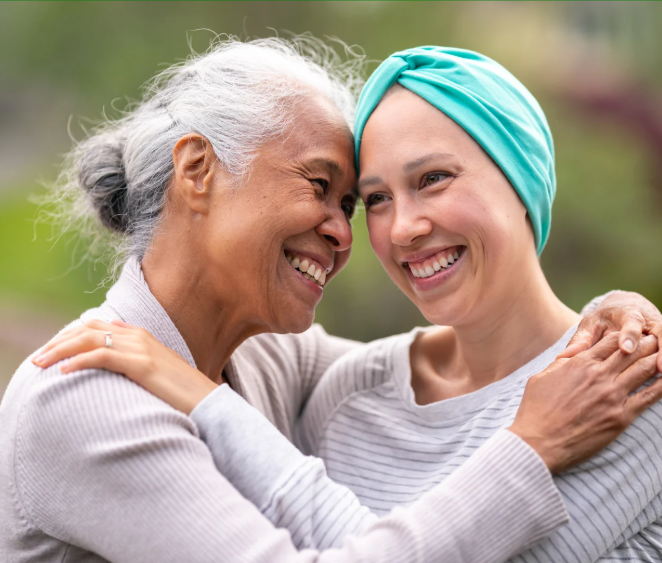Recovery Beyond Active Cancer Treatment: Building a Foundation for Recovery and Long-Term Health through Nutrition
Jun 01, 2025Nutrition plays a critical role throughout the cancer journey. From diagnosis through treatment and into survivorship, expert nutrition support can improve outcomes, reduce treatment-related side effects, and support long-term health. Despite this, nutrition remains one of the most overlooked aspects of cancer care.

The Evidence Behind Nutrition in Cancer Care
A growing body of research supports the inclusion of medical nutrition therapy in standard cancer treatment.
- The Clinical Oncology Society of Australia (COSA) Position Statement advocates for early and targeted nutrition intervention as a core component of oncology care.
- Dietitians Australia highlights that Accredited Practising Dietitians are essential in managing the high risk of malnutrition in people undergoing cancer treatment.
- The Journal of Clinical Medicine published an article on Nutrition in Cancer Patients reporting that “Despite being recognised that nutritional intervention is essential, nutritional support is not widely accessible to all patients”.
Common Nutritional Challenges Faced by Cancer Patients
- Treatment Side Effects
Cancer treatments such as chemotherapy, radiotherapy, immunotherapy, and surgery can lead to nausea, altered taste, fatigue, gastrointestinal issues, and appetite loss. These symptoms make it difficult to meet nutritional needs. - Muscle Loss and Malnutrition
Sarcopenia (loss of muscle mass) and unintentional weight loss are common and can affect recovery, quality of life, and survival. Nutrition, particularly protein, is essential for preserving strength and immune function. - Conflicting Online Advice
Patients often encounter unverified or conflicting dietary recommendations online, increasing confusion and the risk of adopting restrictive or harmful diets. - Fear and Anxiety Around Food
Concerns about certain foods "feeding cancer" can lead to fear-driven eating and unnecessary dietary restriction, which may negatively impact recovery. - Post-Treatment Uncertainty
After treatment, many people want to make positive lifestyle changes but don’t know what to eat to reduce the risk of recurrence or support their health going forward.
What are the Benefits of Evidence-Based Nutrition Support?
Structured nutrition support can help patients to:
- Improve tolerance to treatment and reduce complications
- Maintain energy, weight, and muscle mass
- Support immune health and wound healing
- Enhance quality of life and psychological wellbeing
- Reduce hospital admissions and health costs
- Support long-term health and reduce recurrence risk
Accessing the Right Support
Finding reliable nutrition support can feel overwhelming, especially during cancer treatment. It’s important to seek help from qualified professionals with experience in oncology care. Many cancer centres offer access to nutrition experts as part of your treatment team.
You can also explore free and low-cost options including:
- Your National Cancer Charity may have access to free nutritionists or dieticians who specialise in supporting patients with your cancer type. Take a look at their website or give them a call to see what support is available. If they can’t help you, they will be able to point you in the right direction!
- Hospital outpatient dietetic services may be available via your General Practitioner (GP) referral, or through your treating team if you are undergoing cancer treatment.
- Community health services that include nutrition support as part of chronic disease management.
- Bulk-billed telehealth dietitian appointments, available through the public health system with a GP Management Plan. (Again - your GP can help you here).
- Local cancer support groups, which often offer workshops or nutrition webinar. (Make sure you join our free Facebook Group).

Tailored, Flexible, On-line Education
If you're looking for tailored, flexible on-line education, structured programs like The NutraThrive Collective offer another layer of support, empowering patients and carers with evidence-based guidance and community connection.
What we offer
The NutraThrive Collective Signature Program was developed by healthcare professionals and cancer survivors to deliver clear, evidence-informed guidance for people navigating cancer and recovery. The program is grounded in Australian healthcare experience and international best practice.
13 Self-Paced Online Modules
Expert-led modules cover core topics including:
- Nutrition after cancer treatment
- Managing side effects such as fatigue, nausea, and taste changes
- Protein, fibre, vitamins, and minerals for recovery
- Plant-based nutrition and cancer prevention
- Reducing the risk of recurrence
- Debunking dietary myths
- Intermittent fasting and cancer—what the evidence says
- Nutrition for people with stomas
Monthly Group Coaching Calls
Live support sessions led by health professionals and Industry Experts, offering evidence-informed insights and the opportunity to ask questions in real time.
Private Community Access
Join a confidential online network and connect others going through similar experiences to share strategies, recipes, and encouragement.
Lifetime Access
Once you join, revisit lessons and receive future program updates, ensuring support remains relevant over time.
We're here for you inside The NutraThrive Collective!


